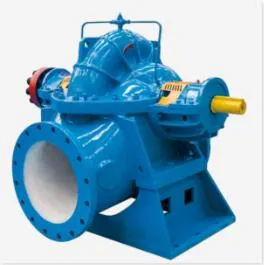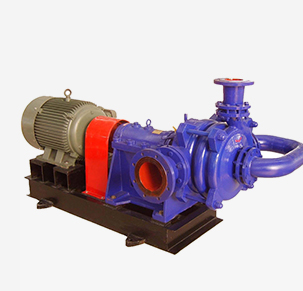TEL:
+86 13120555503
Sesotho
- Afrikaans
- Albanian
- Amharic
- Arabic
- Armenian
- Azerbaijani
- Basque
- Belarusian
- Bengali
- Bosnian
- Bulgarian
- Catalan
- Cebuano
- Corsican
- Croatian
- Czech
- Danish
- Dutch
- English
- Esperanto
- Estonian
- Finnish
- French
- Frisian
- Galician
- Georgian
- German
- Greek
- Gujarati
- Haitian Creole
- hausa
- hawaiian
- Hebrew
- Hindi
- Miao
- Hungarian
- Icelandic
- igbo
- Indonesian
- irish
- Italian
- Japanese
- Javanese
- Kannada
- kazakh
- Khmer
- Rwandese
- Korean
- Kurdish
- Kyrgyz
- Lao
- Latin
- Latvian
- Lithuanian
- Luxembourgish
- Macedonian
- Malgashi
- Malay
- Malayalam
- Maltese
- Maori
- Marathi
- Mongolian
- Myanmar
- Nepali
- Norwegian
- Norwegian
- Occitan
- Pashto
- Persian
- Polish
- Portuguese
- Punjabi
- Romanian
- Russian
- Samoan
- Scottish Gaelic
- Serbian
- Sesotho
- Shona
- Sindhi
- Sinhala
- Slovak
- Slovenian
- Somali
- Spanish
- Sundanese
- Swahili
- Swedish
- Tagalog
- Tajik
- Tamil
- Tatar
- Telugu
- Thai
- Turkish
- Turkmen
- Ukrainian
- Urdu
- Uighur
- Uzbek
- Vietnamese
- Welsh
- Bantu
- Yiddish
- Yoruba
- Zulu
Telephone: +86 13120555503
Email: frank@cypump.com
Mar . 06, 2025 13:27 Back to list
axial flow pump
Axial flow pumps are an innovative solution in the realm of fluid dynamics, playing an essential role in various industries due to their unique ability to manage flow in a highly efficient manner. These pumps are designed to move fluid by means of an impeller, which adds momentum to the fluid along the direction of the pump’s axis, making them an invaluable resource for operations requiring substantial flow rates and minimal head lift.
Moreover, technological advancements have further enhanced the appeal of axial flow pumps. Modern iterations feature smart systems capable of monitoring and adjusting operations in real-time, optimizing performance and further decreasing energy usage. These improvements not only enhance operational efficiency but also contribute to sustainable practices by reducing the environmental footprint of pumping operations. When selecting an axial flow pump, several factors must be considered to ensure optimal performance and longevity. The selection process should account for the specific nature of the application, including the type of fluid being pumped, the required flow rate, and the operating environment. It is also crucial to assess the energy efficiency ratings of the pump, as this will impact the overall operating costs over time. Engaging with suppliers who provide comprehensive support and maintenance packages can also aid in ensuring the pump's performance remains at optimal levels across its operational life. Expert consultation and peer-reviewed studies underscore the credibility and authority of axial flow pumps in critical applications. Engineers with significant experience in fluid management frequently advocate for their use due to their proven track record in enhancing efficiency while reducing operational disruptions. When backed by strong technical support and a detailed understanding of fluid dynamics, axial flow pumps become not merely a component but a cornerstone of efficient fluid transport systems. Above all, axial flow pumps represent a critical investment in industrial infrastructure, offering unparalleled performance in specific applications. Their balance of functionality, efficiency, and adaptability underscores their indispensable role in modern fluid dynamics engineering. As industries continue to evolve, axial flow pumps will likely further cement their status as essential tools in the quest for operational excellence and sustainability.


Moreover, technological advancements have further enhanced the appeal of axial flow pumps. Modern iterations feature smart systems capable of monitoring and adjusting operations in real-time, optimizing performance and further decreasing energy usage. These improvements not only enhance operational efficiency but also contribute to sustainable practices by reducing the environmental footprint of pumping operations. When selecting an axial flow pump, several factors must be considered to ensure optimal performance and longevity. The selection process should account for the specific nature of the application, including the type of fluid being pumped, the required flow rate, and the operating environment. It is also crucial to assess the energy efficiency ratings of the pump, as this will impact the overall operating costs over time. Engaging with suppliers who provide comprehensive support and maintenance packages can also aid in ensuring the pump's performance remains at optimal levels across its operational life. Expert consultation and peer-reviewed studies underscore the credibility and authority of axial flow pumps in critical applications. Engineers with significant experience in fluid management frequently advocate for their use due to their proven track record in enhancing efficiency while reducing operational disruptions. When backed by strong technical support and a detailed understanding of fluid dynamics, axial flow pumps become not merely a component but a cornerstone of efficient fluid transport systems. Above all, axial flow pumps represent a critical investment in industrial infrastructure, offering unparalleled performance in specific applications. Their balance of functionality, efficiency, and adaptability underscores their indispensable role in modern fluid dynamics engineering. As industries continue to evolve, axial flow pumps will likely further cement their status as essential tools in the quest for operational excellence and sustainability.
Share
Next:
Latest news
-
ISG Series Vertical Pipeline Pump - Chi Yuan Pumps Co., LTD.|High Efficiency, Low Noise, Durable
NewsAug.02,2025
-
ISG Series Vertical Pipeline Pump - Chi Yuan Pumps | High Efficiency, Low Noise
NewsAug.02,2025
-
ISG Series Vertical Pipeline Pump- Chi Yuan Pumps Co., LTD.|High Efficiency&Compact Design
NewsAug.02,2025
-
Heavy-Duty Mining Sludge Pumps - Wear-Resistant Slurry Handling
NewsAug.02,2025
-
Horizontal Split Case Pump with GPT-4 Turbo | High Efficiency
NewsAug.01,2025
-
ISG Series Pipeline Pump - Chi Yuan Pumps | High Efficiency, Durable Design
NewsAug.01,2025










